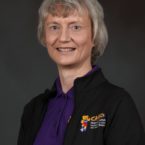Abstract
OBJECTIVES
It is well established that physical activity levels decline during adolescence. To address this problem, a program called the Y Kids Academy was developed to improve young adolescents’ knowledge of healthy lifestyles. The primary goal was to evaluate whether the program would attract participants with both high and low levels of physical literacy and to evaluate whether baseline knowledge scores were associated with physical literacy knowledge. The secondary goals were to determine whether baseline knowledge scores would increase after Y Kids Academy participation or were associated with a standardized assessment of physical literacy knowledge.
METHODS
Parent perceptions of their adolescent’s healthy living behaviours were measured to assess the impact of Y Kids Academy participation on the family. The Canadian Assessment of Physical Literacy (CAPL) was completed pre-Academy to measure participants’ physical literacy. Participants and parents also completed questionnaires pre- and post-Academy to assess change in healthy living knowledge and perception of the child’s healthy living behaviours, respectively. 163 children (mean age of 11.1 ± 0.8) consented to participate (73 female, 45%).
RESULTS
The mean total CAPL score of participants was not significantly different (p=.07) from the mean total CAPL score measured among 3000 Canadian children. The largest proportion of participants (53.3%) were categorized as progressing, similar to the Canadian population (53.2%). Knowledge scores for the Y Kids Academy evaluation were significantly associated with physical literacy knowledge (r = 0.40, p < 0.001). Mean knowledge scores increased significantly (p<0.001) from pre-Academy (10.4 ± 5.4) to post-academy (12.7±6.5). There was no change in parent reported healthy living behaviours (p=0.41).
CONCLUSIONS
The Y Kids Academy program was successful at attracting youth with lower physical literacy in a proportion similar to the Canadian population. These findings support the suitability of the Y Kids Academy for improving and evaluating knowledge of healthy living in young adolescents.
Researchers
-
Patricia Longmuir
Senior Scientist, CHEO Research Institute

